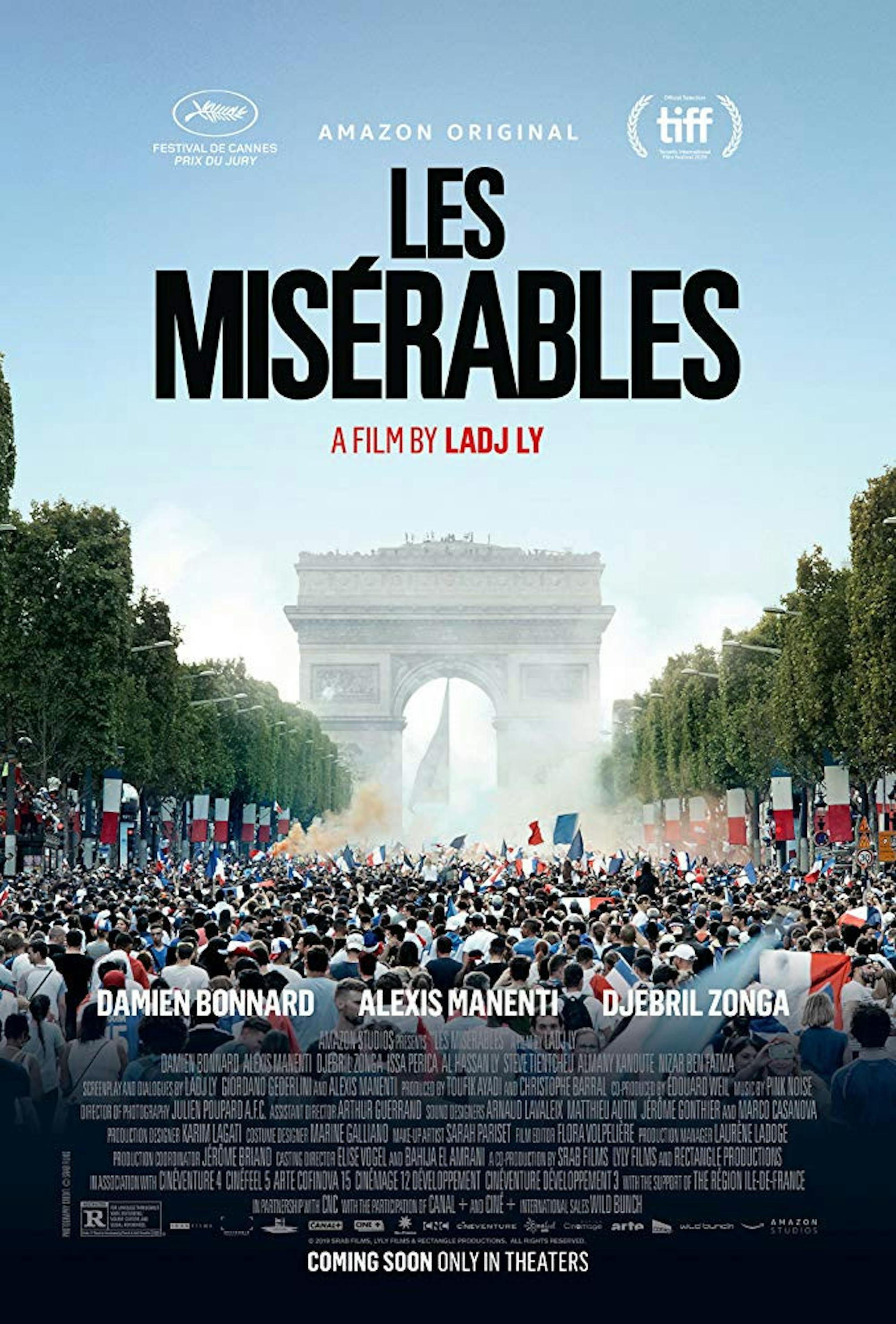DirectorLadj Ly’s feature debut “Les Misérables” (2019) borrows a title, heady themes of inequality and police corruption and even a setting (the Parisian suburb of Montfermeil) from Victor Hugo’s immortal novel. Yet, Ly’s Cannes Film Festival Jury Prize-winning and now Oscar-nominated film seamlessly infuses Instagram crime-solving and drone-filmed police violence into its high-octane, deeply affecting and oftentimes darkly comic story. The outcome is an organically original film, simultaneously ripped from the headlines and bittersweetly incubated in Ly’s own backyard. Even if it fails to do the impossible and upend “Parasite” (2019) in the race for the Academy Award for Best International Feature Film, Ly can nonetheless feel supremely chuffed with his first feature film, which was partially inspired by France’s 2005 banlieue riots.
“Les Misérables” did already garner one major awards upset when it beat out Céline Sciamma’s searing romance “Portrait of a Lady on Fire” (2019) to win the French submission for the Oscar, and the subsequent nomination seems to have silenced any doubters. Since its premiere at Cannes in May, the film and its director have made resilience the name of their game. Ly, who based “Les Misérables” on his identically-named 2017 short, grew up in a Malian-French family in Montfermeil, and he recently established a nearby school for aspiring filmmakers from disadvantaged backgrounds. In interviews, Ly has expressed his hope that this new “Les Mis” will give the banlieues their cinematic due: “I’m going to make you see what real life looks like in this neighborhood. I've lived through this,” he told NPR.
Under Ly’s assured eye, “Les Misérables” quickly assumes an intimate, naturalistic veneer. While France celebrates its 2018 World Cup victory, as depicted in a euphoric if ominous opening sequence, the film follows its pre-teenaged characters on the train from the shadow of the Arc de Triomphe back to its own antipodean, sprawling world: the immigrant-dominated, graffiti-camouflaged apartment blocks of Montfermeil. Also taking in the scenery are recently-transferred cop Stéphane Ruiz (Damien Bonnard) and his colleagues, corrupt captain Chris (Alexis Manenti) and banlieue-raised Gwada (Djibril Zonga), who intermediate between rival clans quarreling over a stolen lion (really!). When they track down the prepubescent culprit (Issa Perica) via Instagram, a rash act threatens to plunge the entire town into pandemonium.
It is a testament to Ly’s direction (and co-screenwriting) that the Montfermeil depicted in “Les Misérables” feels sprawling and lived-in rather than thin and muddled, at least at first. The navigable chaos of the jumbled streets, parking lots, outdoor markets and apartment blocks Ly expertly crafts in the film follows in the storied footsteps of banlieue cinema like “La Haine” (1995) and, more recently, “Dheepan” (2015). With the aid of Julien Poupard’s understated camerawork (and a few inspired drone shots), “Les Misérables” develops tension and character through dialogue with a deft touch, effortlessly immersing its audience.
The film’s cast and crew also deserve much credit for marrying its tension with a potent emotional grounding. Many of the cast make their debut along with Ly, with Perica and Zonga giving particularly affecting performances. The sound of “Les Misérables,” for the most part, is the sound of bustling streets, unsupervised urban play and crowded apartments. Ly and the composers of Pink Noise cleverly keep their electro-synth score sparse, lending its infrequent undulating notes a powerful poignance.
Where “Les Misérables” falters is in its final coda, which, despite packing well-crafted thrills, veers a bit too didactic compared to the shifting motivations and lifelike volatility of the film that precedes it. As Jean Valjean probably said, however, these are but gripes (grapes?). 2019’s “Les Misérables” does its namesake proud, serving as a cinematic experience that remains topical without becoming preachy, building an expansive world without sacrificing rich characters and genuinely moving its audience without trafficking in cheap sentimentality. Ly has said that he wants the film to evoke the “daily misery” of Montfermeil, but for anyone interested in great movies, the emergence of “Les Misérables” and its ascendant director is pure joie de vivre.
Ladj Ly and 'Les Misérables' breathe new joy into French cinema

A promotional poster for "Les Misérables" (2019) is pictured.
Summary
'Les Misérables' represents a supremely impressive debut for writer-director Ladj Ly.
4 Stars





